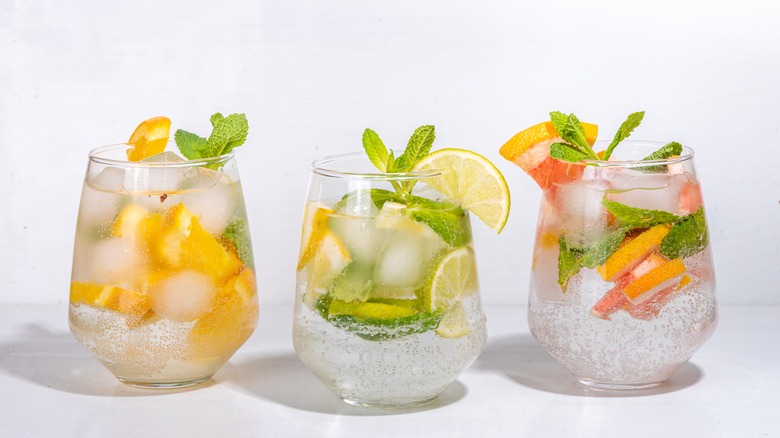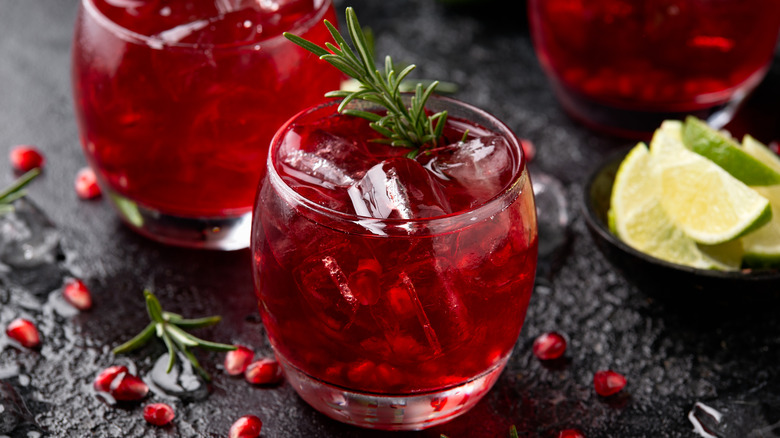For Better Mocktails, Turn To Tart Fruits
The key to a great mocktail is building flavor without relying too heavily on alcohol. Although plenty of non-alcoholic and mocktail recipes are floating around on the internet, the best ones rely on a very simple ingredient as their base: fruit.
In an exclusive interview with Mashed, Fonda bar manager Juan Ramirez points out that the necessity of starting from ground zero when crafting a mocktail is exactly what makes them so fun to create. "For me, using fruits that are more tart — such as blueberries and passionfruit — is a good base to start with," he explained. "From there, you can work on layering flavors and adding carbonation or not."
Usually, alcohol provides the flavor base for a cocktail, but when you take away the spirits, you need to replace them with something just as flavorful and mouth-puckering. As such, you can use passionfruit, blueberries, pineapple, lemons, pomegranate, or even cranberries.
Mocktail ideas so tasty, you won't miss the alcohol
If you're using fruit in your mocktails, the tarter, the better. Lidia Bastianich's apple cider cranberry spritz, for instance, starts with two cups of crushed cranberries. She then adds apple cider and sparkling water for a bit of a bubbly kick. Delicious, and guaranteed to make your mouth pucker.
Similarly, you can whip up a non-alcoholic punch recipe by mixing tart pomegranate and cranberry juices with carbonated ginger ale. For an added punch (pun intended), you can even toss in tangy orange slices and whole pomegranate seeds.
Of course, using tart fruits in your mocktail doesn't mean you have to feel like you're sucking on a lemon. A coconut cream mocktail recipe, for example, tames the bite of pineapple juice with a healthy splash of coconut milk and a dollop of brown sugar. Really, who said a piña colada had to include rum? You won't even need it when you've got so many other great flavors to work with.

